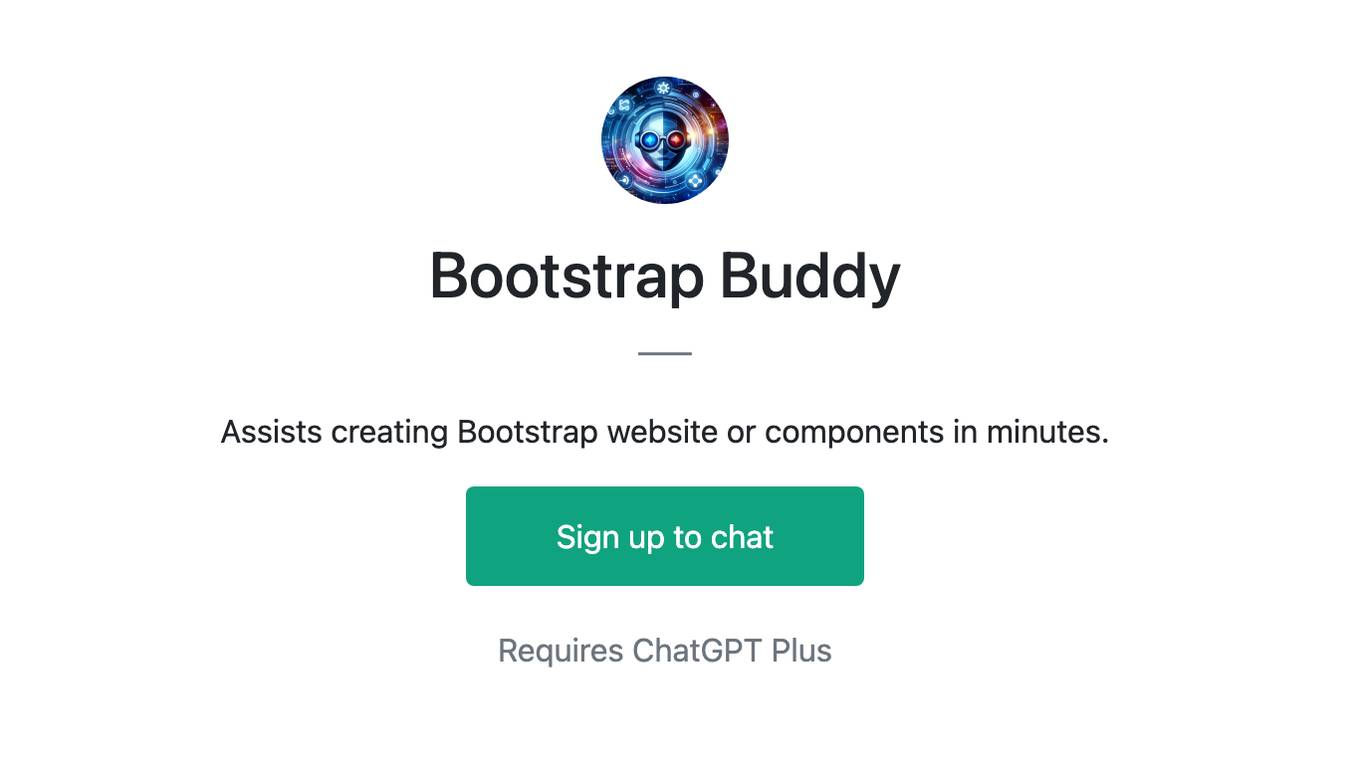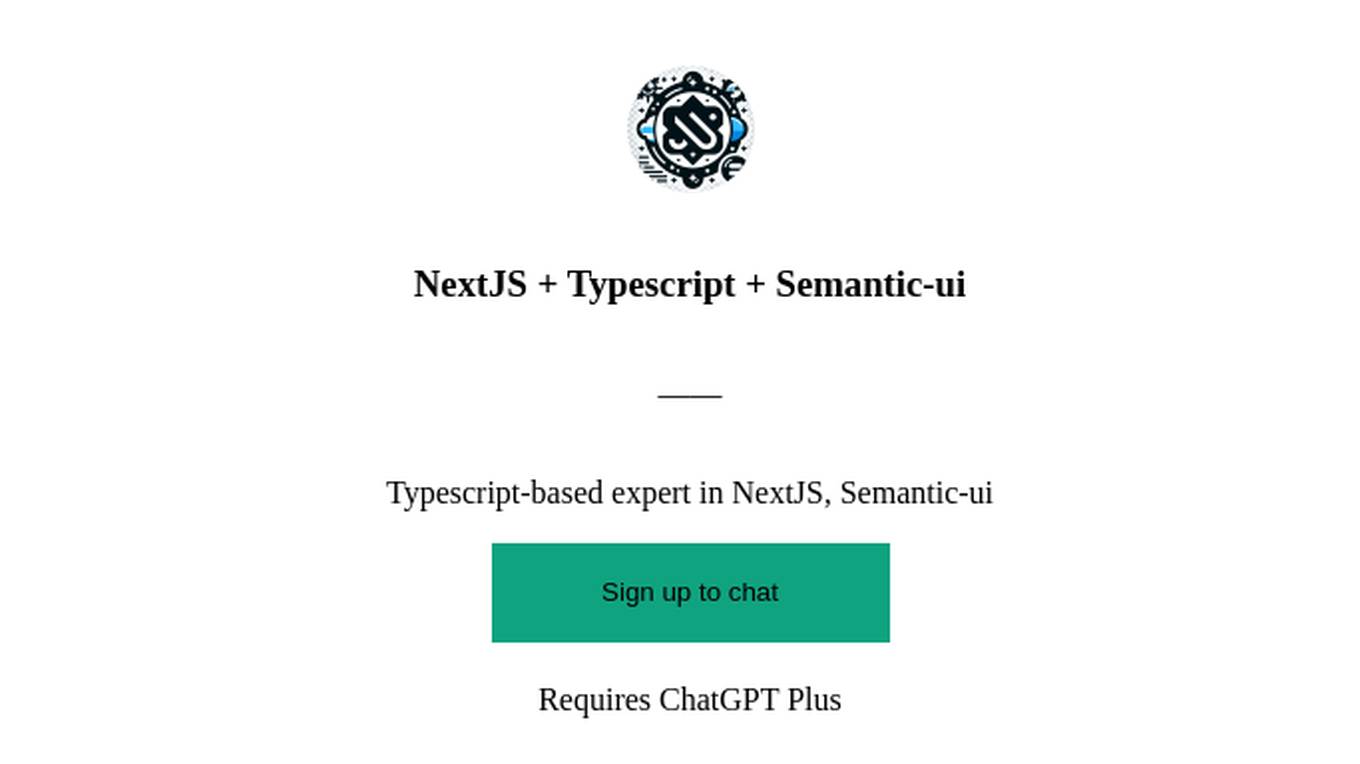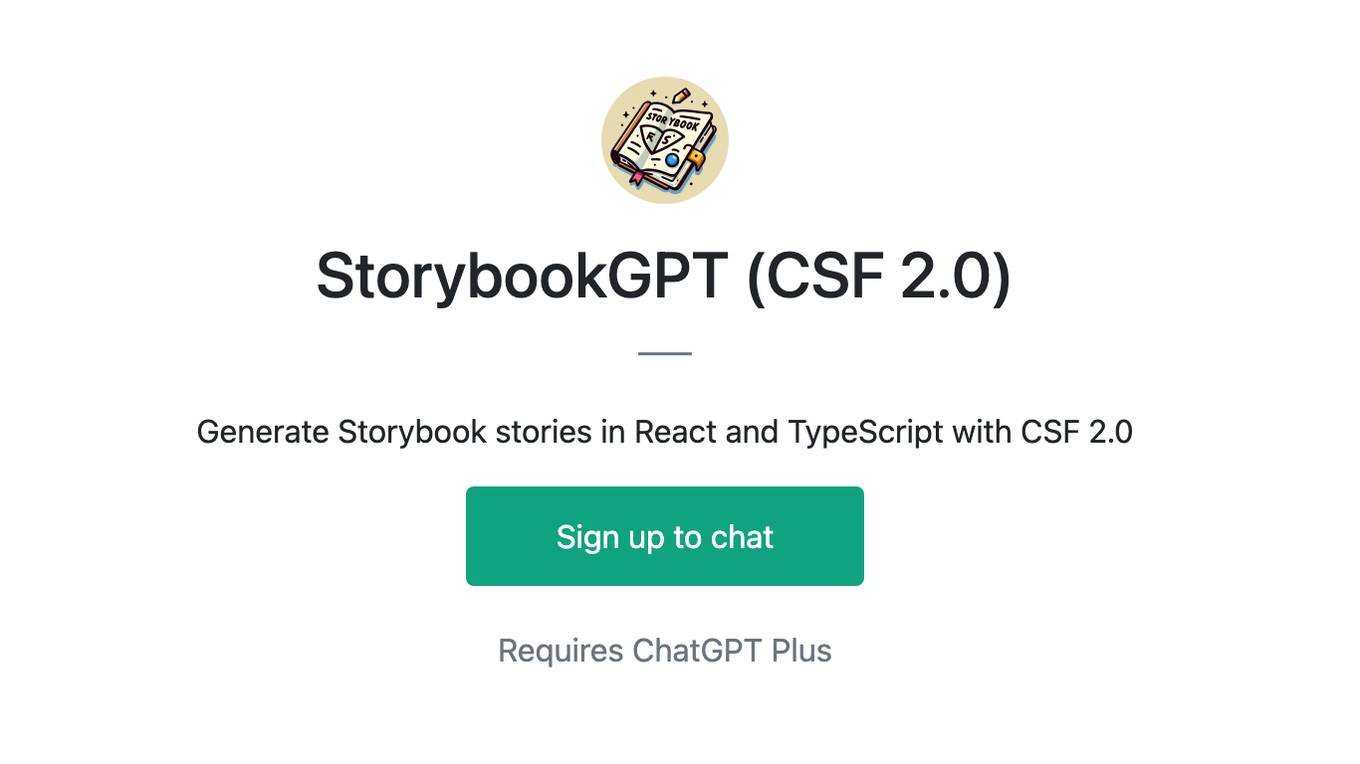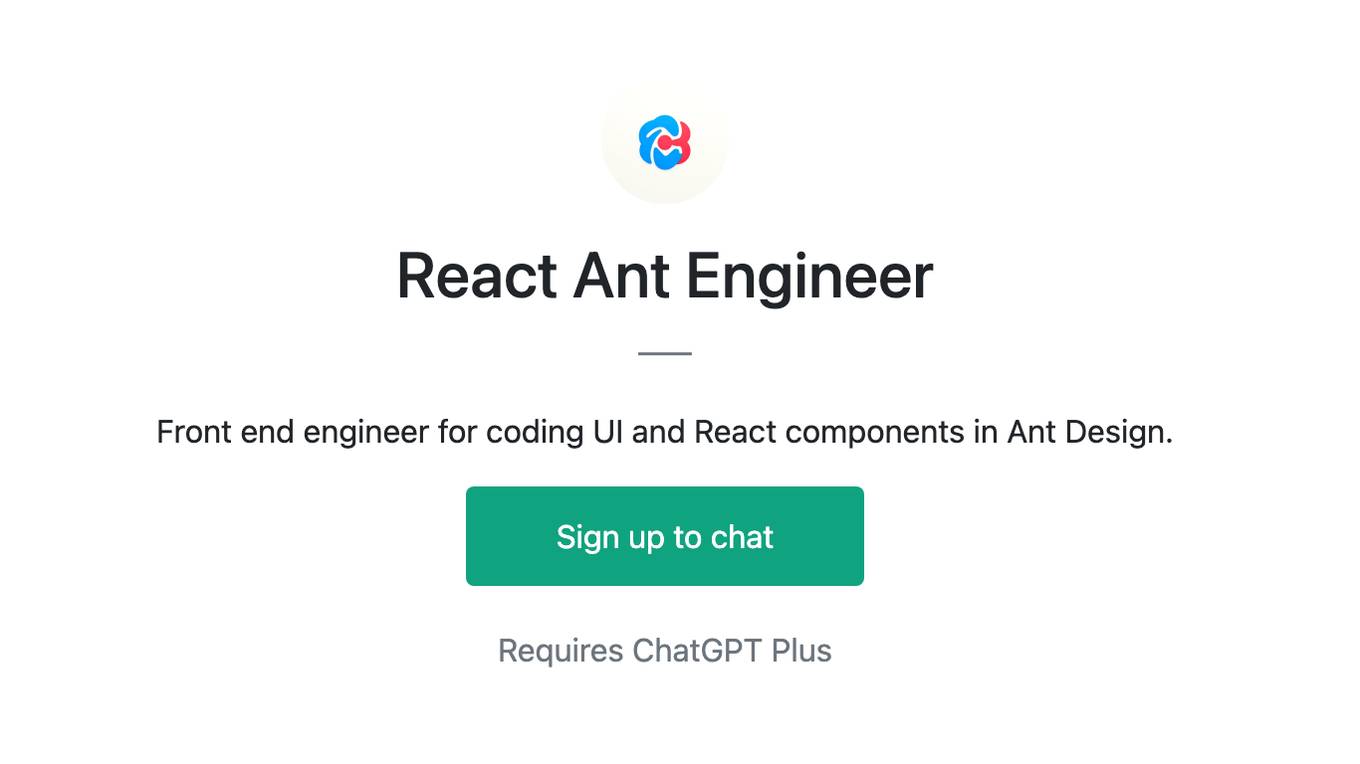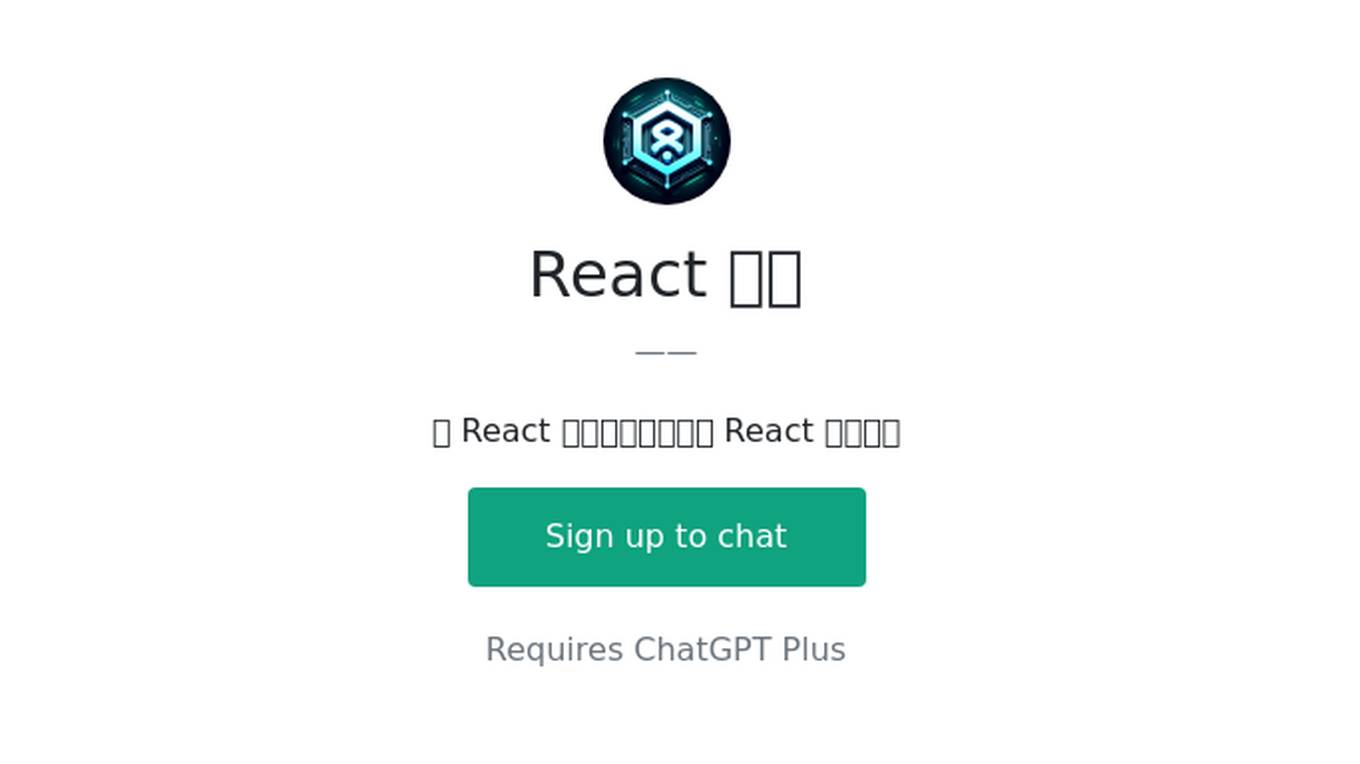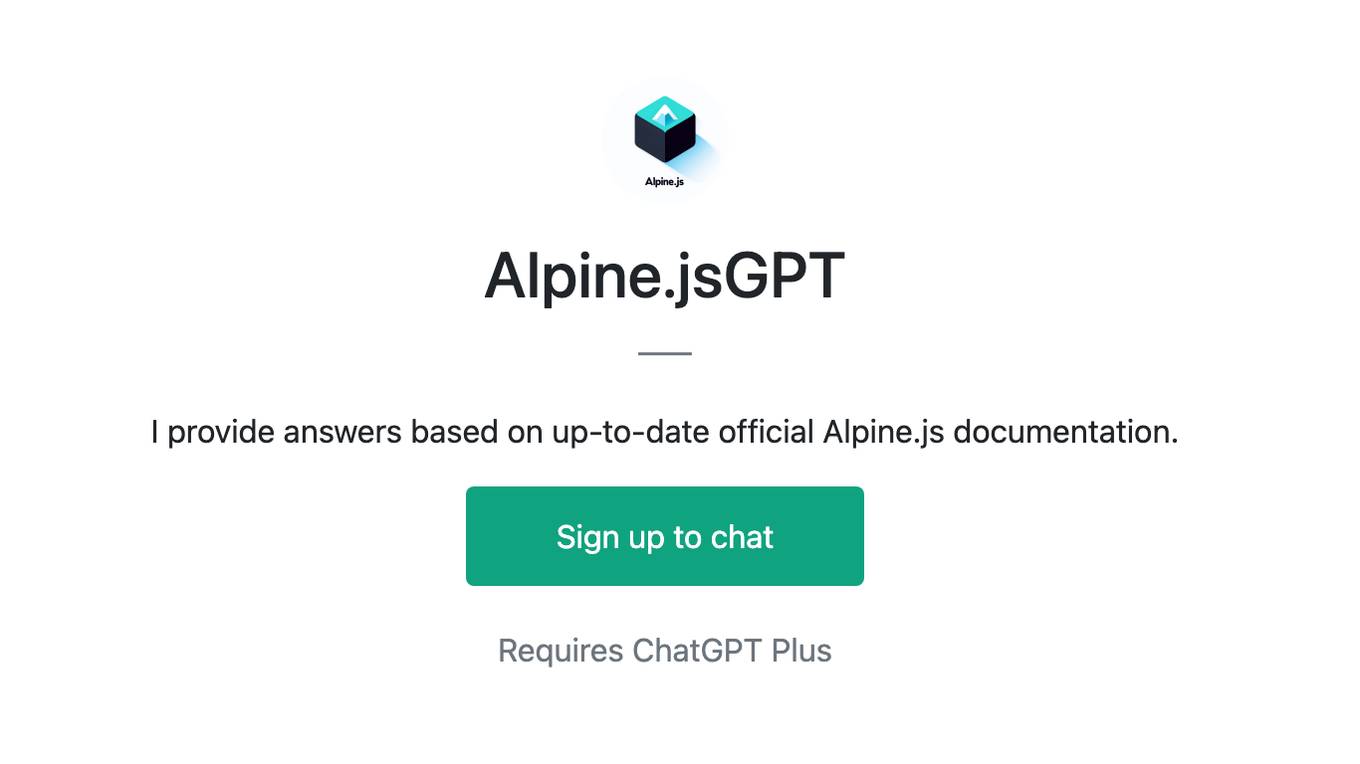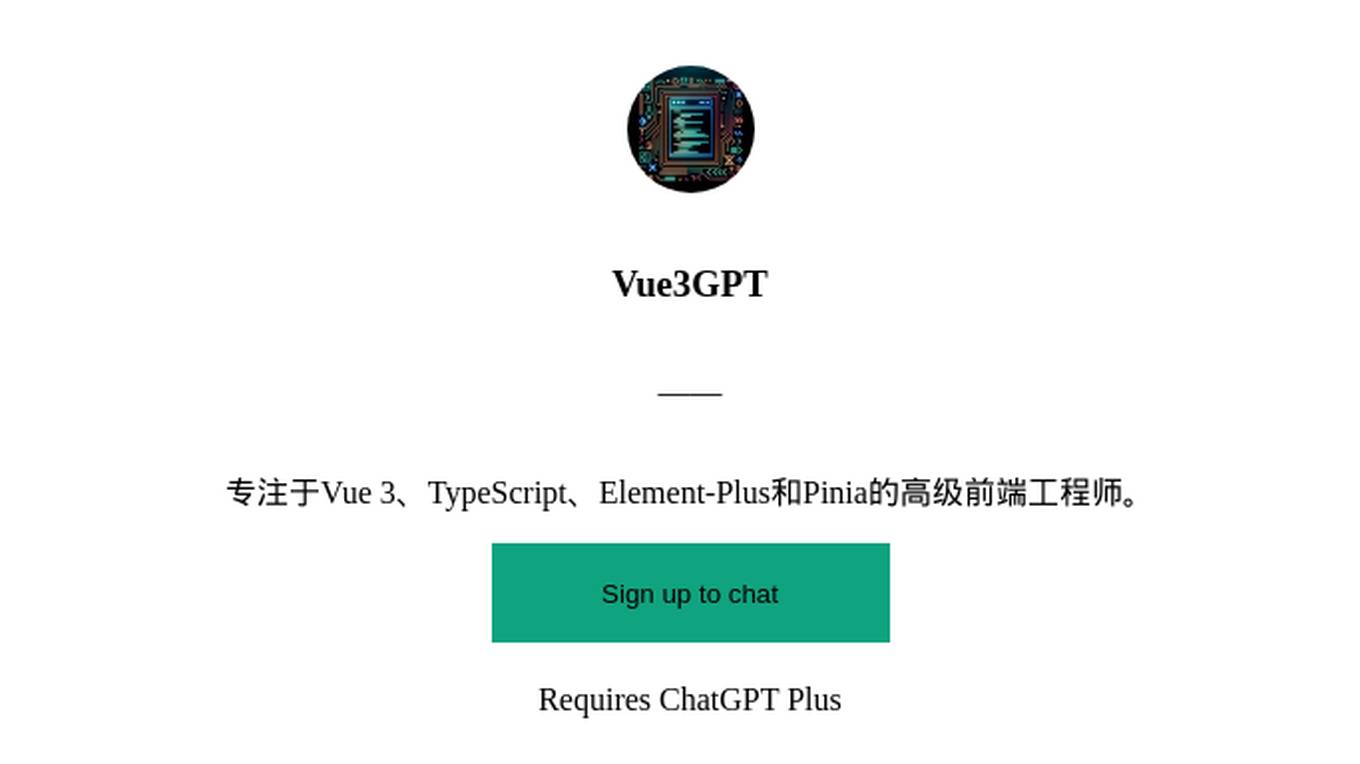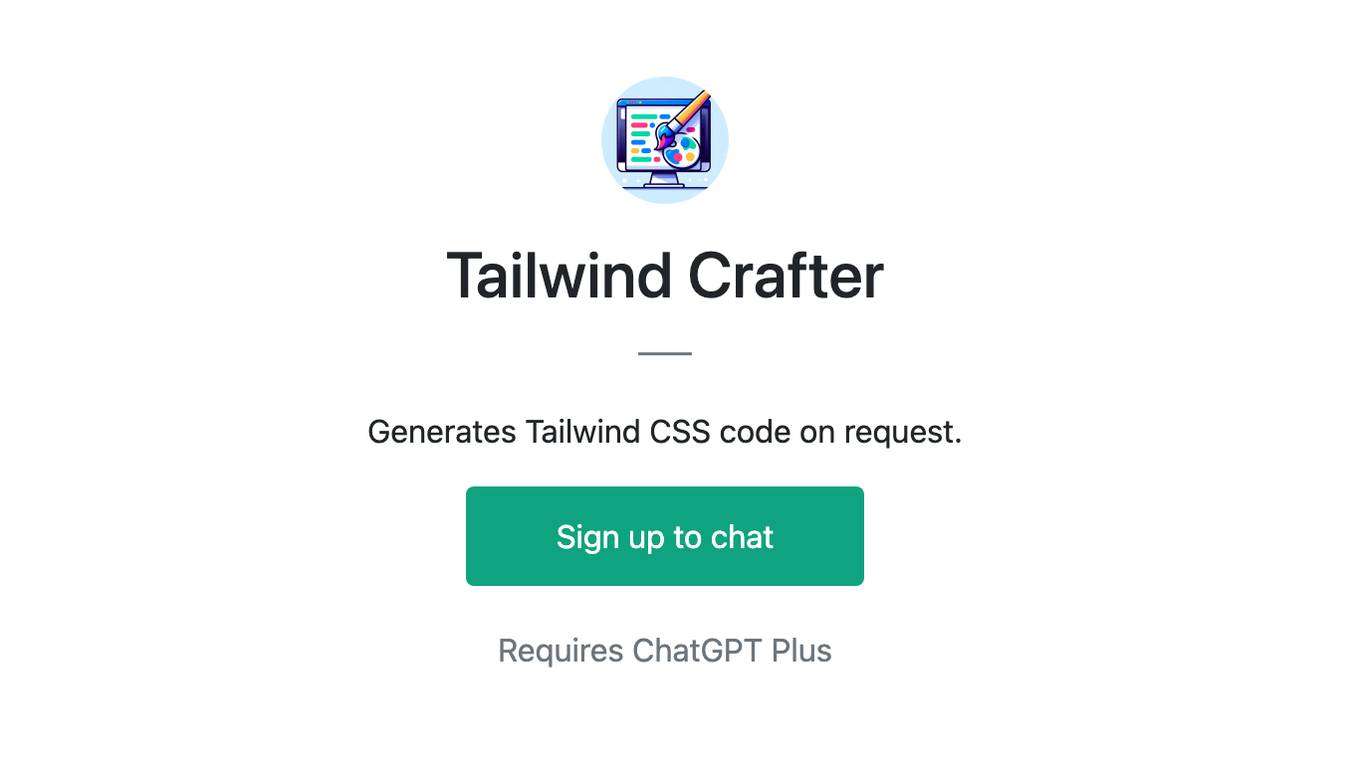Best AI tools for< Build Component >
20 - AI tool Sites
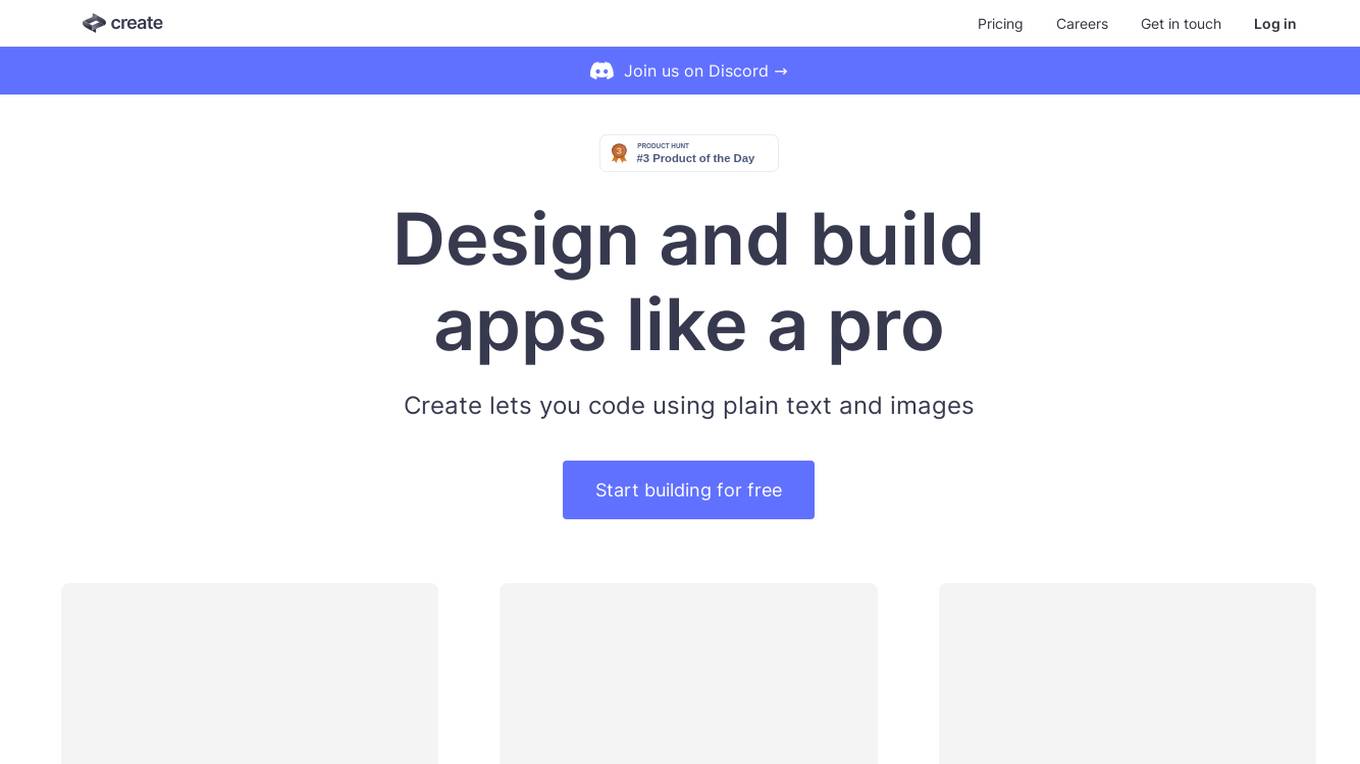
Create
Create is a free-to-use AI app builder that lets you code using plain text and images. With Create, you can design and build apps like a pro, without having to write a single line of code. Create is perfect for building internal tools, prototypes, and even full-fledged applications.

AIComponent.dev
AIComponent.dev is an AI-powered component generator that allows users to create UI components quickly and easily. The platform enables users to engage in conversation, design stunning components, and develop code seamlessly in one place. By describing their desired component in a few words, users can generate product cards, contact forms, navigation menus, and more with the assistance of AI technology. AIComponent.dev aims to streamline the component creation process and enhance the efficiency of UI development.
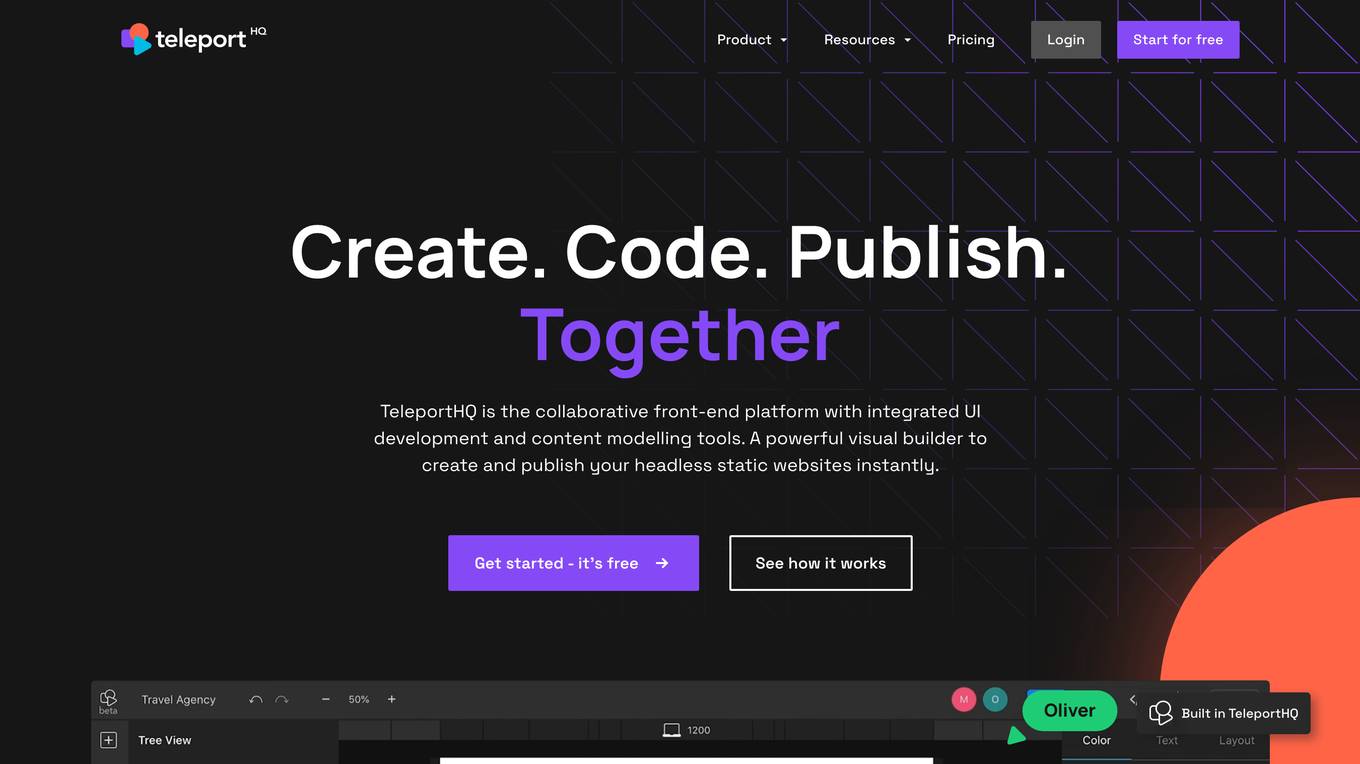
TeleportHQ
TeleportHQ is a collaborative front-end platform that provides tools for UI development and content modeling. It offers a visual builder for creating and publishing static websites, headless CMS integrations, and Figma plugin for importing designs. TeleportHQ enables seamless collaboration between designers and developers, allowing them to create responsive websites, components, and interfaces. It also provides code collaboration tools, code generators, and a powerful front-end UI editor for customization. With TeleportHQ, teams can build, collaborate, and ship production-ready code faster.
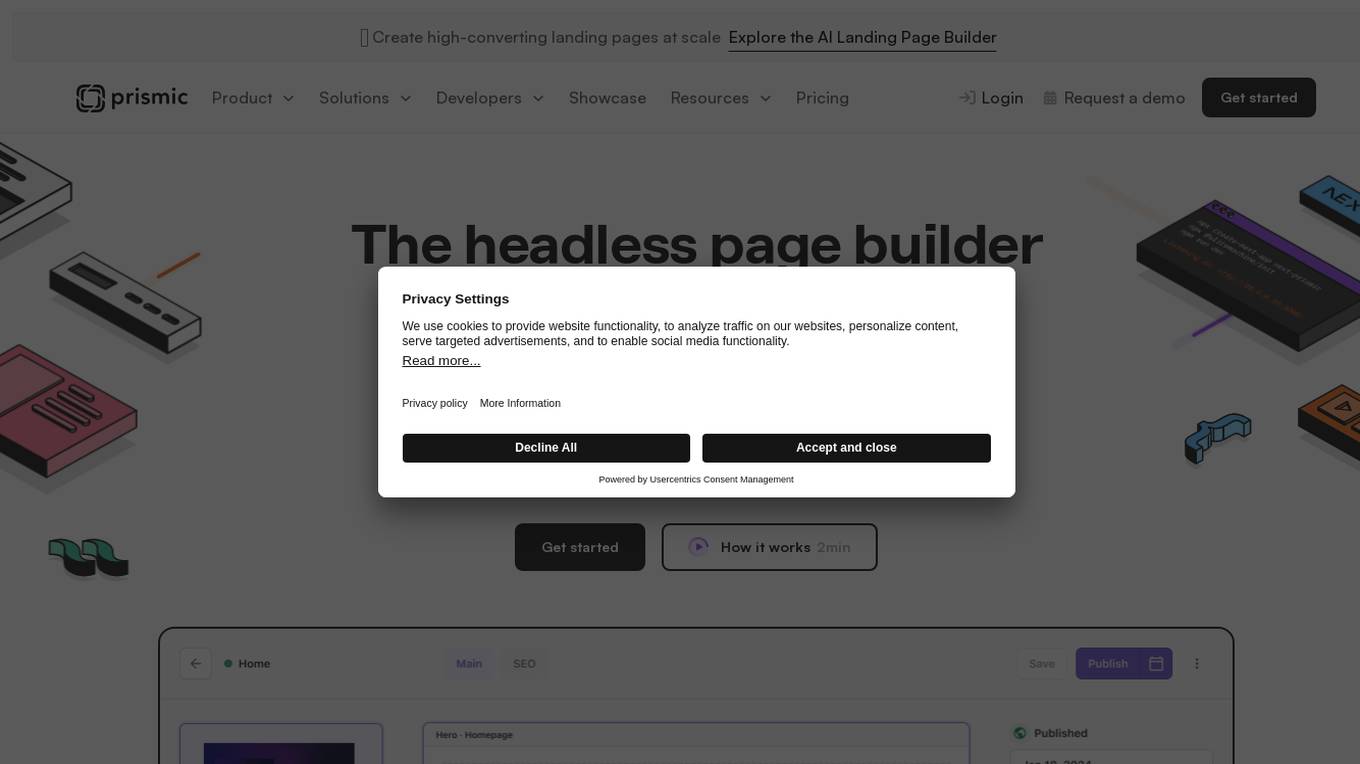
Prismic
Prismic is an AI-powered headless page builder designed for Next.js, Nuxt, and SvelteKit sites. It empowers marketing teams to create high-converting landing pages quickly while maintaining brand consistency. With features like live previews, dynamic visual page builder, and scheduled releases, Prismic streamlines the process of publishing on-brand pages. For developers, Prismic offers a developer tool to build pre-approved components and automate repetitive tasks, resulting in faster website development. The application also includes a local developer tool for structuring content, defining components, and pushing them to the Page Builder, reducing time to launch by 65%.
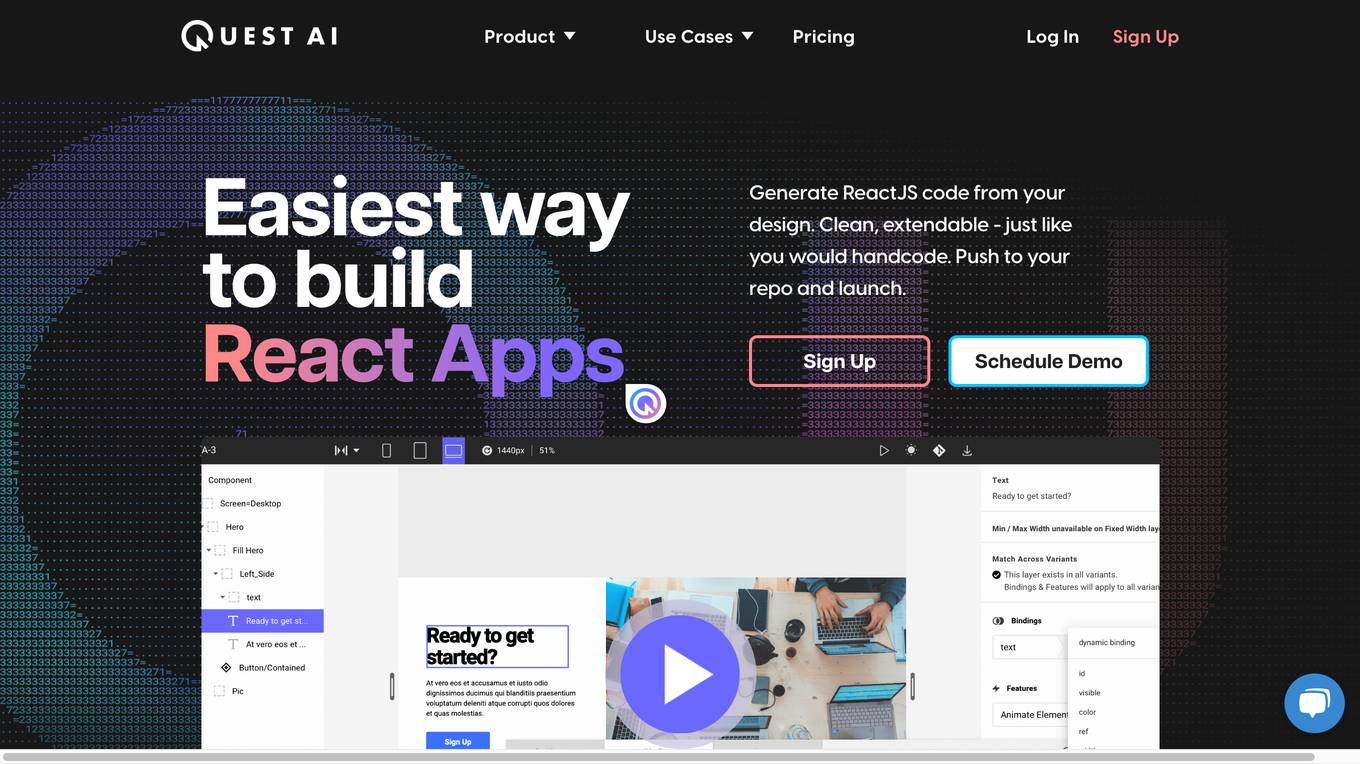
Quest
Quest is a web-based application that allows users to generate React code from their designs. It incorporates AI models to generate real, useful code that incorporates all the things professional developers care about. Users can use Quest to build new applications, add to existing applications, and create design systems and libraries. Quest is made for development teams and integrates with the design and dev tools that users love. It is also built for the most demanding product teams and can be used to build new applications, build web pages, and create component templates.
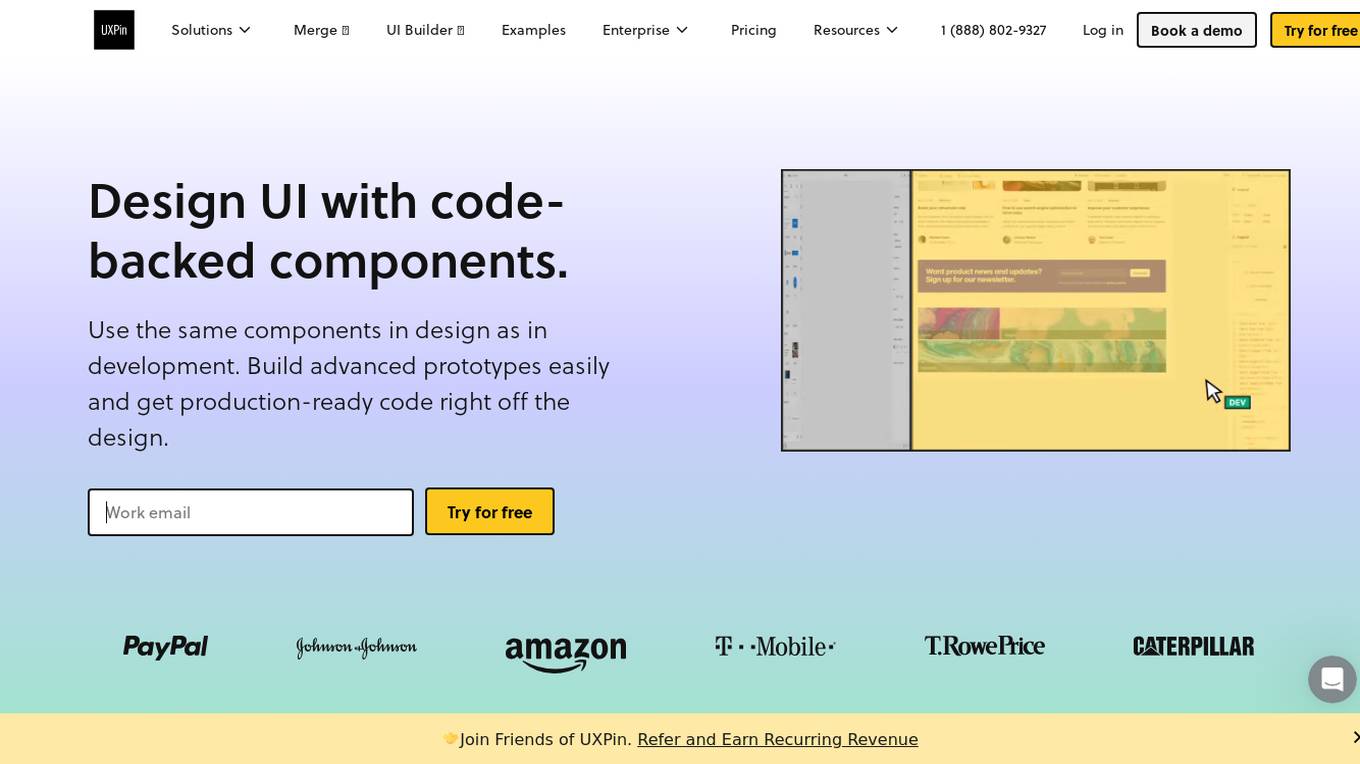
UXPin
UXPin is an AI-powered UX/UI and prototyping tool designed for designers and developers to streamline the design process. It allows users to design UI, create prototypes, manage design systems, and merge code seamlessly. With advanced features like AI-powered design, code-backed components, and integration with popular libraries, UXPin enhances collaboration between designers and developers, resulting in faster product development cycles and improved design consistency.
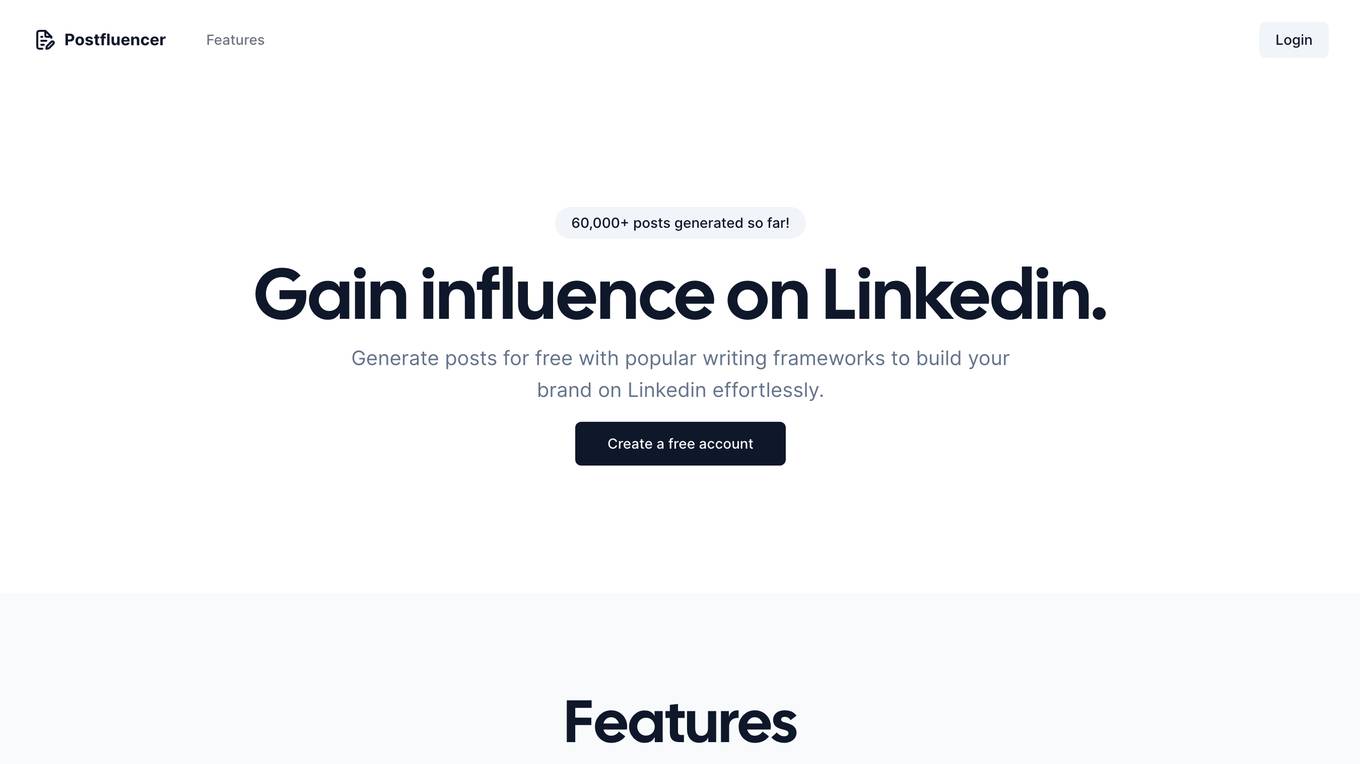
Postfluencer
Postfluencer is a platform designed to help users enhance their personal brand on LinkedIn by generating high-performing posts using popular writing frameworks. With over 70,000 posts generated so far, Postfluencer offers a user-friendly interface for creating and rewriting posts, as well as access to a variety of templates for ideation. The platform aims to simplify the process of building influence on LinkedIn by providing tools to streamline content creation and brand development.
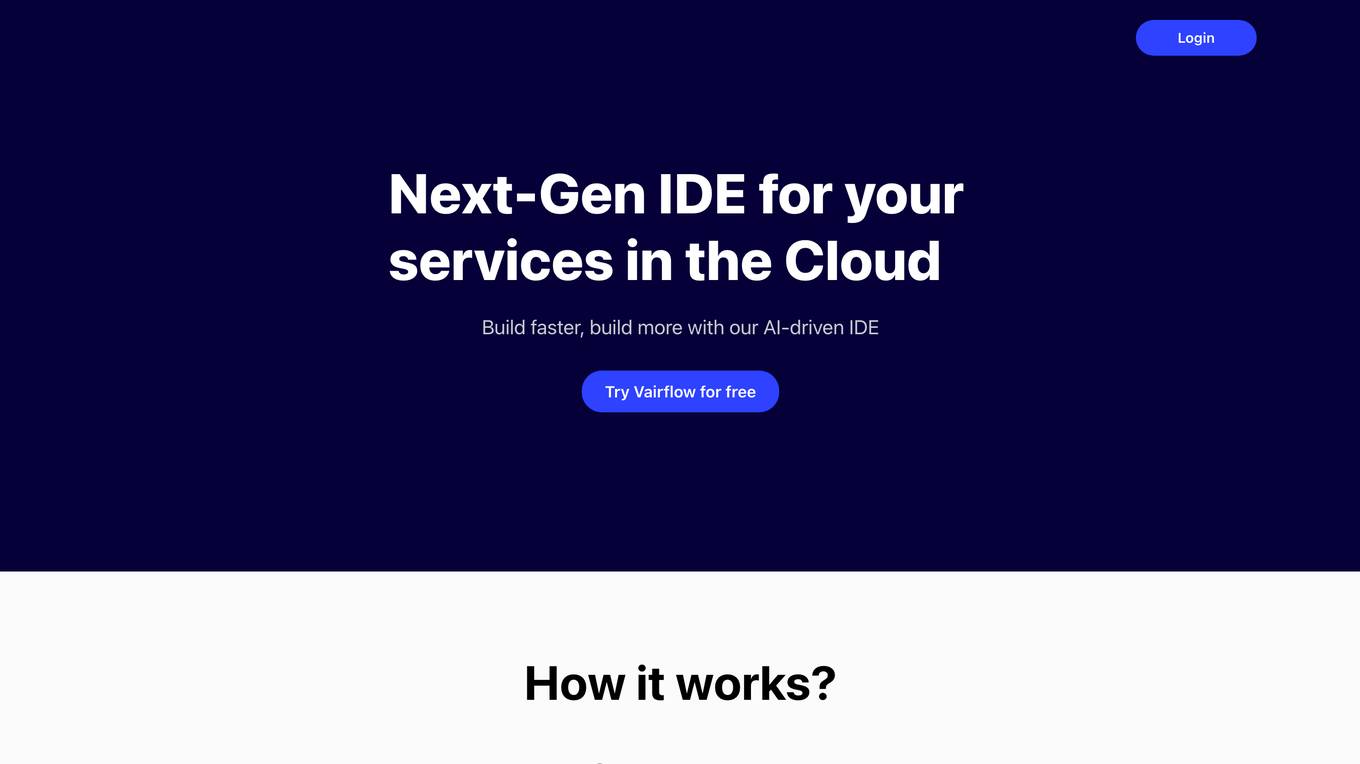
Vairflow
Vairflow is an AI-driven Integrated Development Environment (IDE) that empowers developers to build faster and more efficiently. It simplifies complex ideas into components, allowing seamless development and deployment of backend microservices, web UI, and mobile app UI. With upcoming AI features like code generation, completion, and explanation, Vairflow aims to enhance the coding experience. The platform also offers flexible deployment options, cost-effective usage, and seamless collaboration, ensuring no vendor lock-in and pay-as-you-go pricing model.
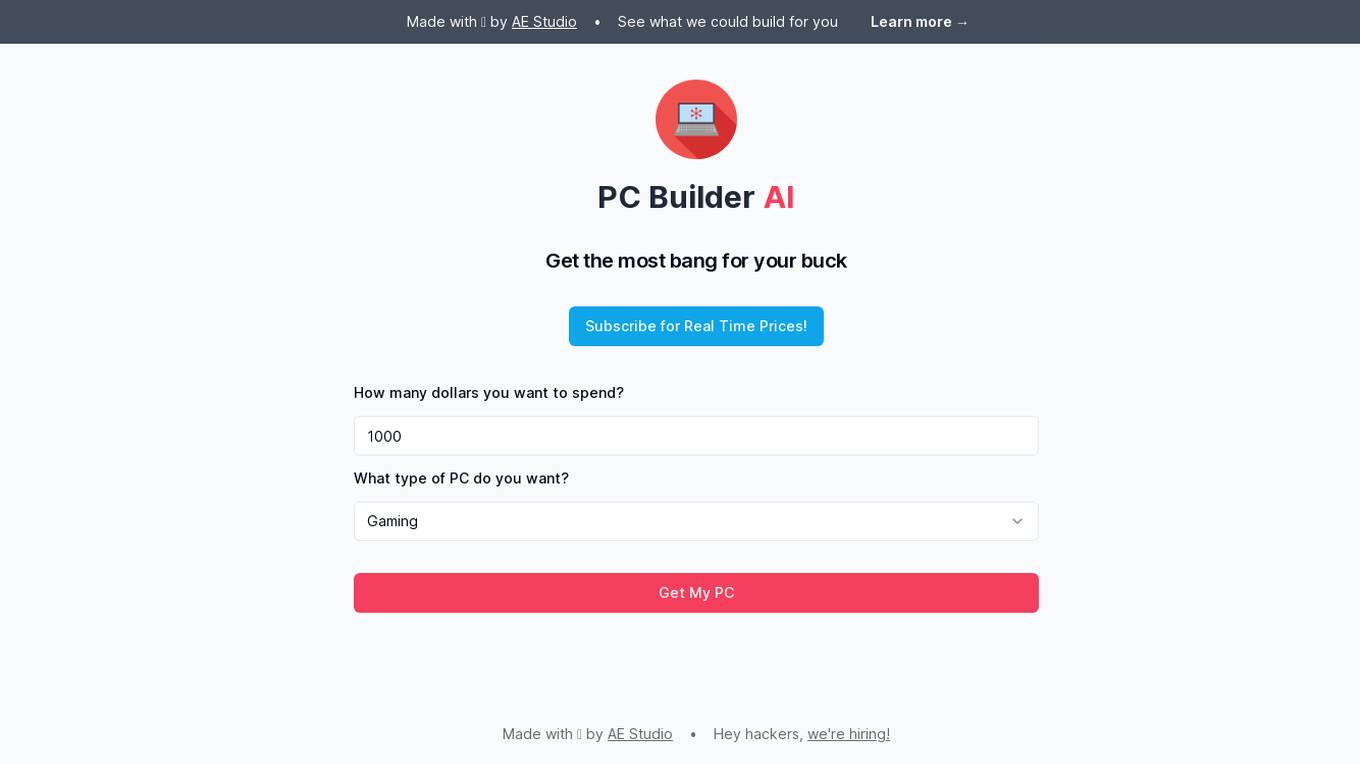
PC Builder AI
PC Builder AI is an artificial intelligence tool developed by AE Studio to assist users in building a customized PC based on their budget and preferences. The tool allows users to input their desired budget and PC specifications, and it provides real-time price updates to help users get the best value for their money. With a user-friendly interface, PC Builder AI simplifies the process of selecting components and building a PC tailored to individual needs. Whether you are a tech enthusiast or a novice, PC Builder AI can help you create a high-performance PC without the hassle of researching and comparing components.
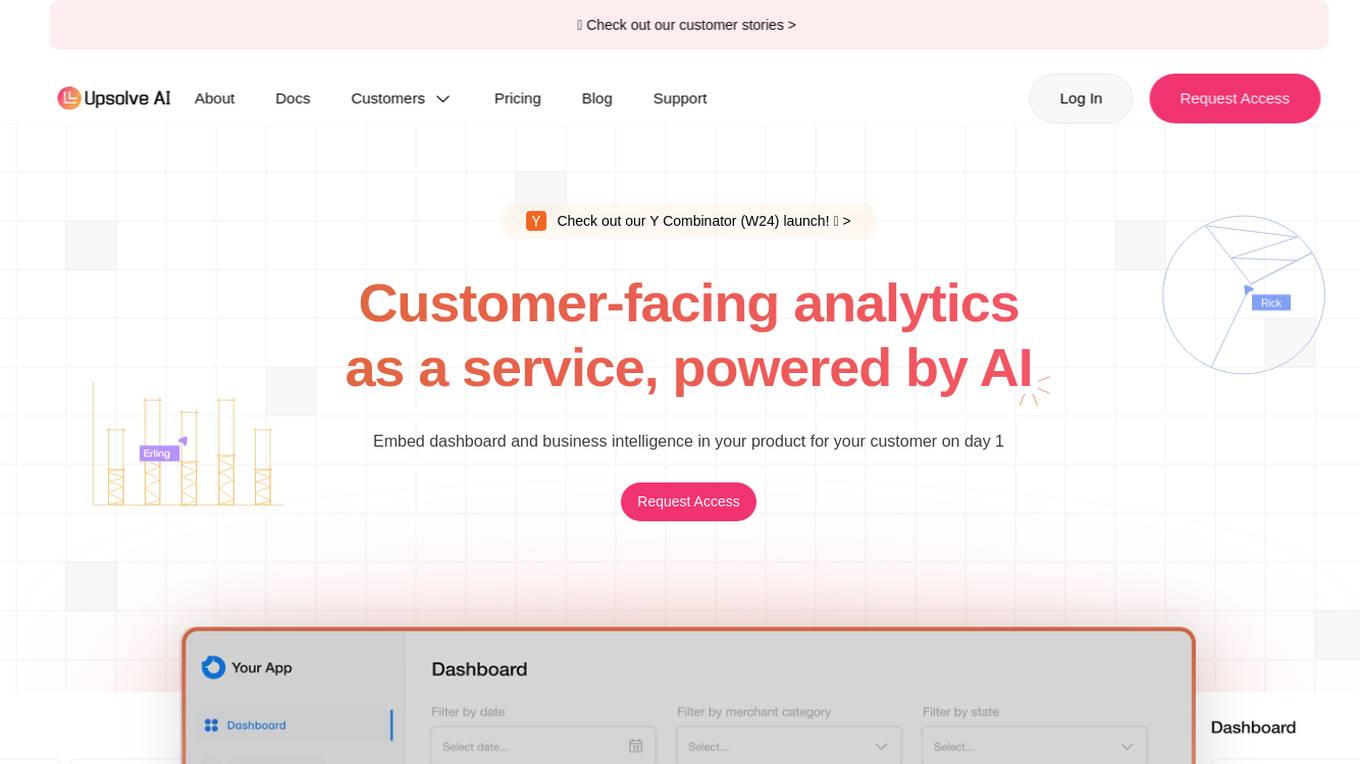
Upsolve AI
Upsolve AI is a customer-facing analytics service powered by AI that allows businesses to embed dashboard and business intelligence in their products for customers. It manages customer analytics, empowers users with product data insights, and provides out-of-the-box connections to popular databases. With features like building interactive analytics dashboards, creating custom charts, and offering self-service customization, Upsolve AI aims to help businesses make data-driven decisions and communicate values to stakeholders. The platform also offers easy deployment, theme customization, and AI-powered chart exploration for enhanced user experience.
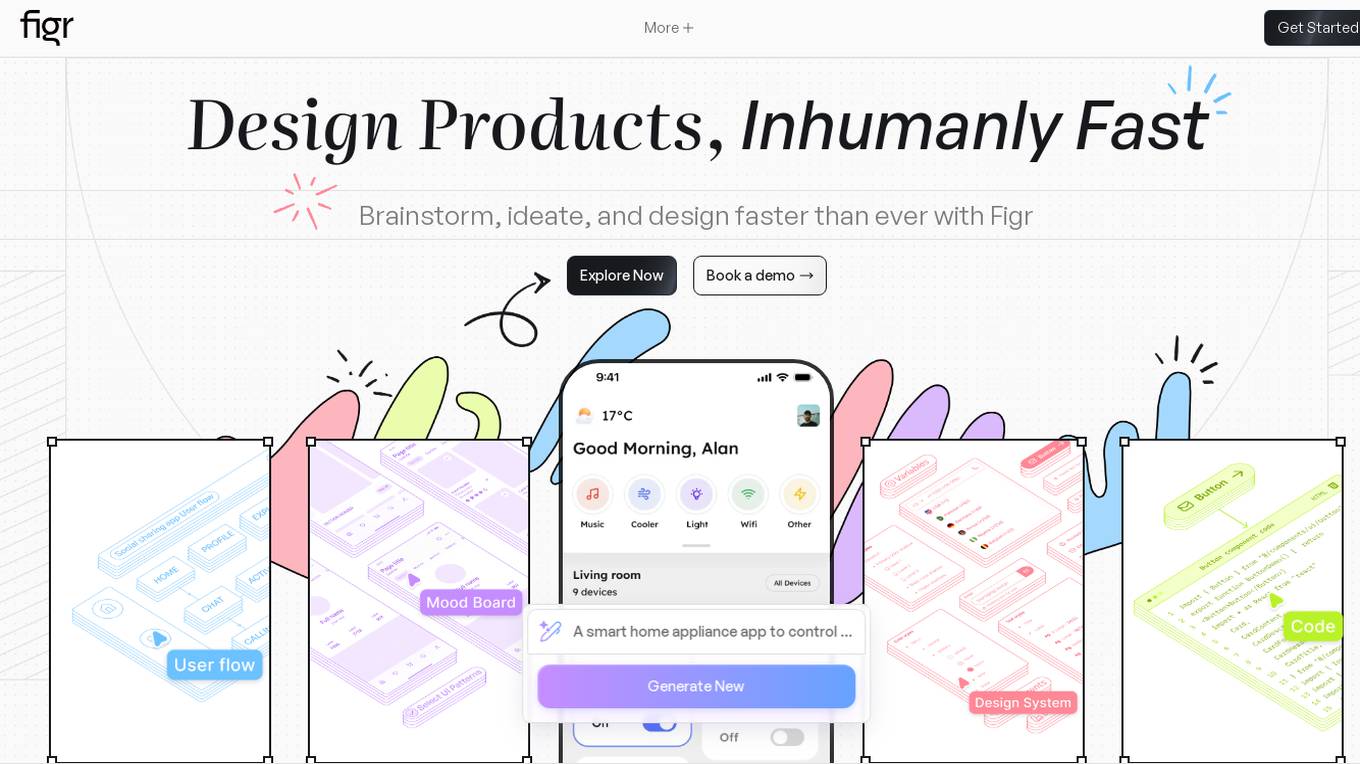
Figr
Figr is an AI-driven platform that specializes in UI design and workflow optimization. It leverages artificial intelligence to streamline the design process, making it more efficient and user-friendly. With Figr, users can create stunning user interfaces with ease, thanks to its intuitive tools and smart suggestions. The platform caters to both beginners and experienced designers, offering a range of features to enhance productivity and creativity. Figr aims to revolutionize the way UI design is approached by integrating AI technology seamlessly into the workflow.
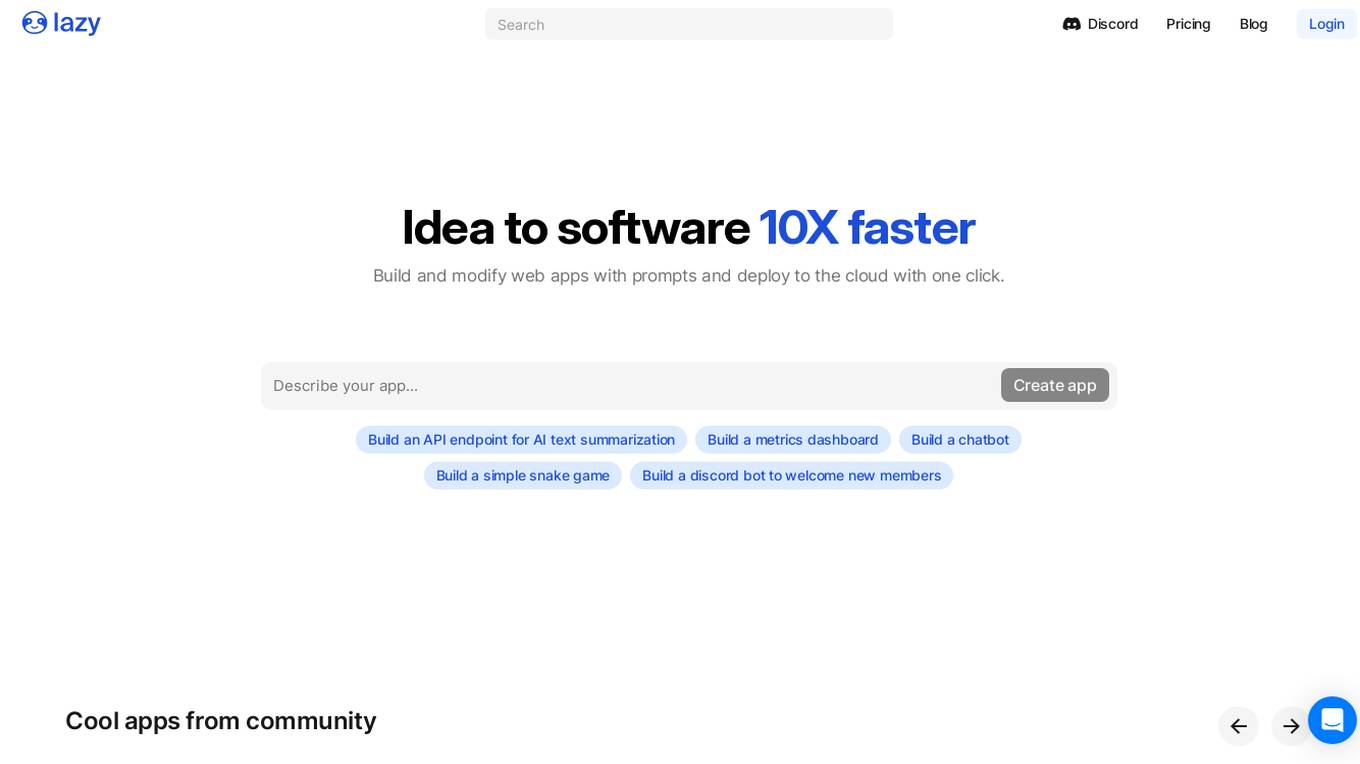
Lazy AI
Lazy AI is a platform that enables users to build full stack web applications 10 times faster by utilizing AI technology. Users can create and modify web apps with prompts and deploy them to the cloud with just one click. The platform offers a variety of features including AI Component Builder, eCommerce store creation, Crypto Arbitrage Scraper, Text to Speech Converter, Lazy Image to Video generation, PDF Chatbot, and more. Lazy AI aims to streamline the app development process and empower users to leverage AI for various tasks.
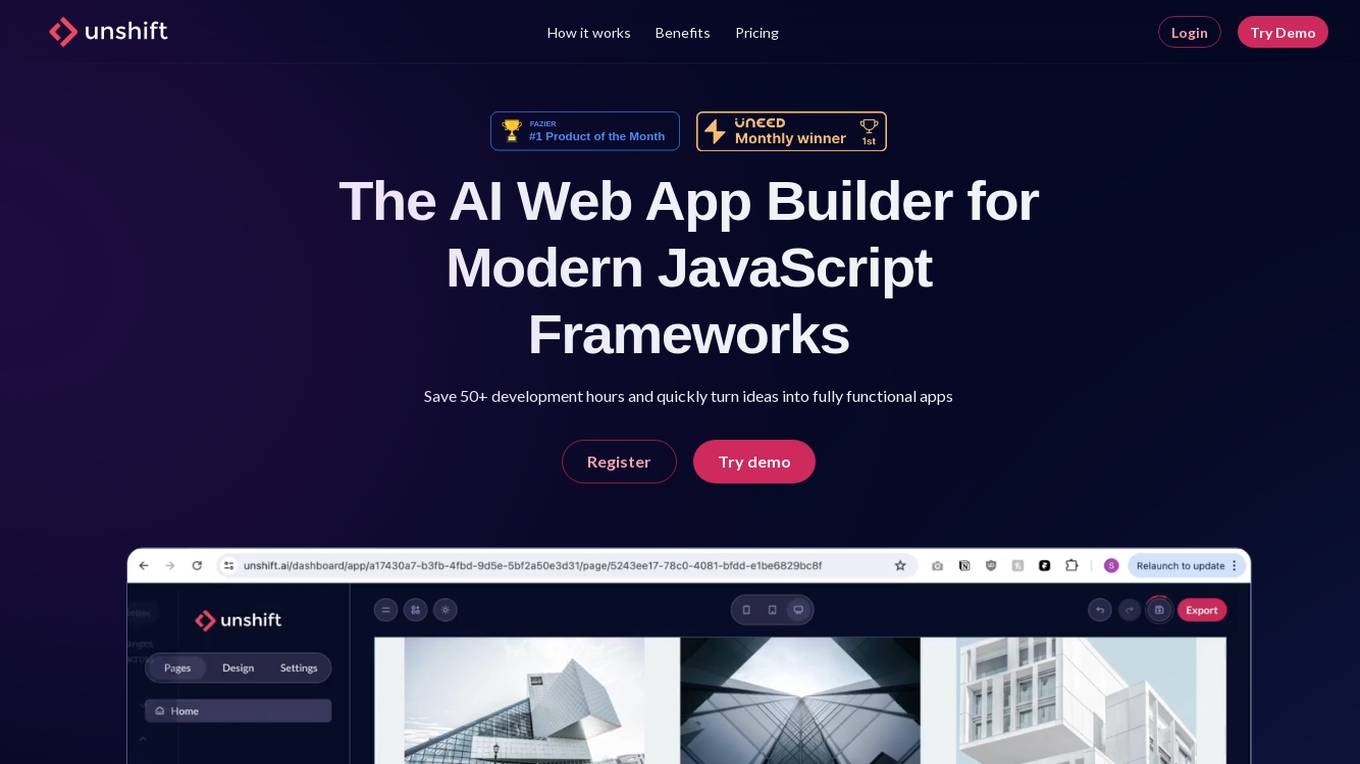
The Web App Builder
The Web App Builder by Unshift AI is an AI-powered platform designed to help users quickly and efficiently create fully functional web applications using modern JavaScript frameworks. With features like an advanced editor, support for various frameworks, and access to professionally written code, the platform streamlines the app development process and saves developers time. Users can easily customize design elements, manage content, and export their apps to different frameworks. The platform also offers AI-generated content, extensive component libraries, and a customizable design system to enhance app development. Overall, The Web App Builder is a comprehensive tool for building web applications with ease and efficiency.
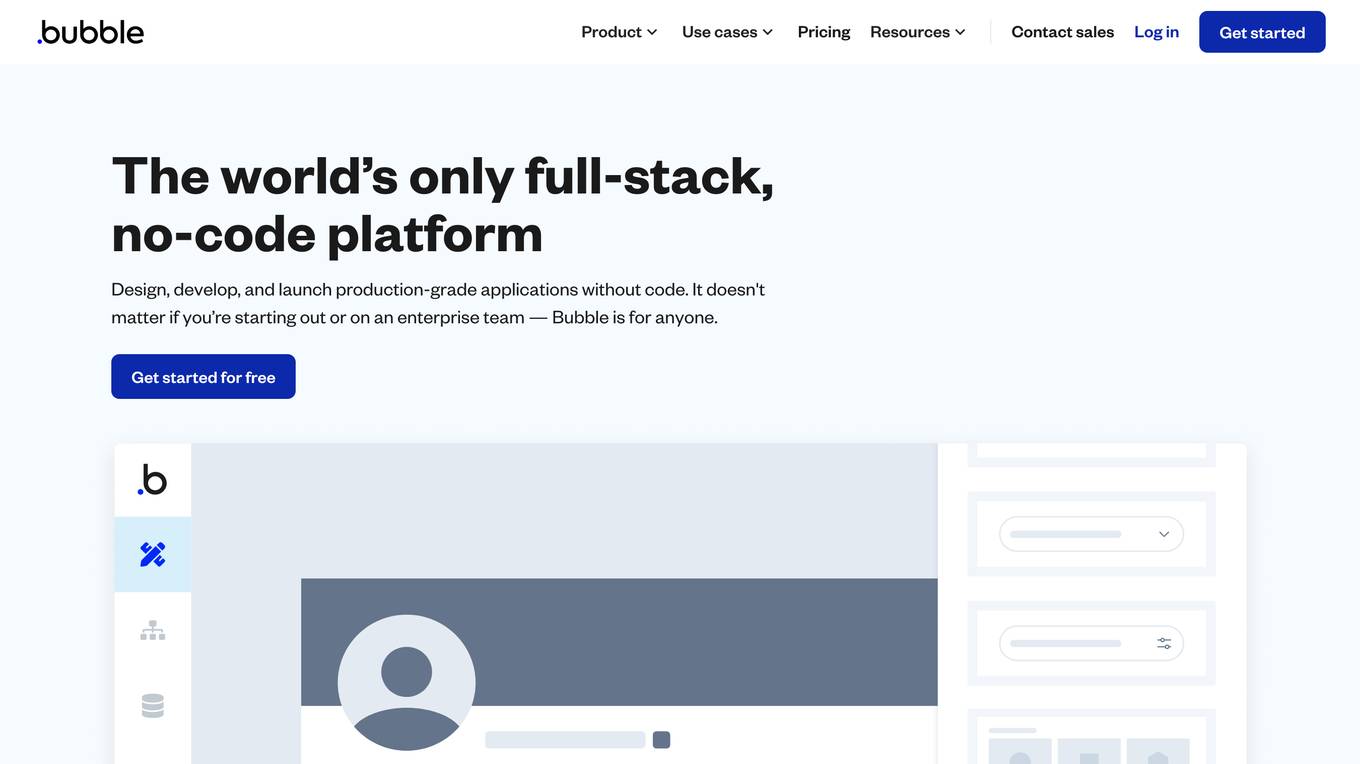
Bubble
Bubble is a no-code application development platform that allows users to build and deploy web and mobile applications without writing any code. It provides a visual interface for designing and developing applications, and it includes a library of pre-built components and templates that can be used to accelerate development. Bubble is suitable for a wide range of users, from beginners with no coding experience to experienced developers who want to build applications quickly and easily.
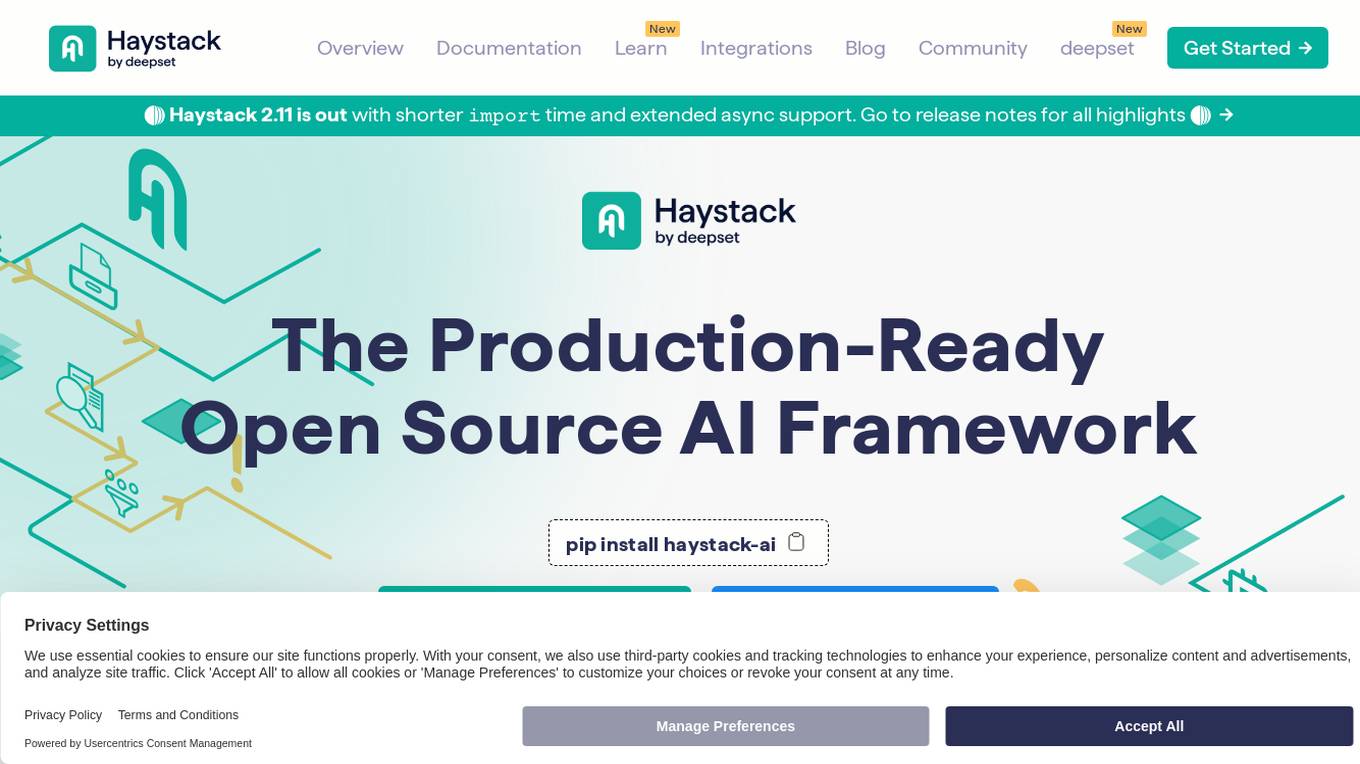
Haystack
Haystack is a production-ready open-source AI framework designed to facilitate building AI applications. It offers a flexible components and pipelines architecture, allowing users to customize and build applications according to their specific requirements. With partnerships with leading LLM providers and AI tools, Haystack provides freedom of choice for users. The framework is built for production, with fully serializable pipelines, logging, monitoring integrations, and deployment guides for full-scale deployments on various platforms. Users can build Haystack apps faster using deepset Studio, a platform for drag-and-drop construction of pipelines, testing, debugging, and sharing prototypes.
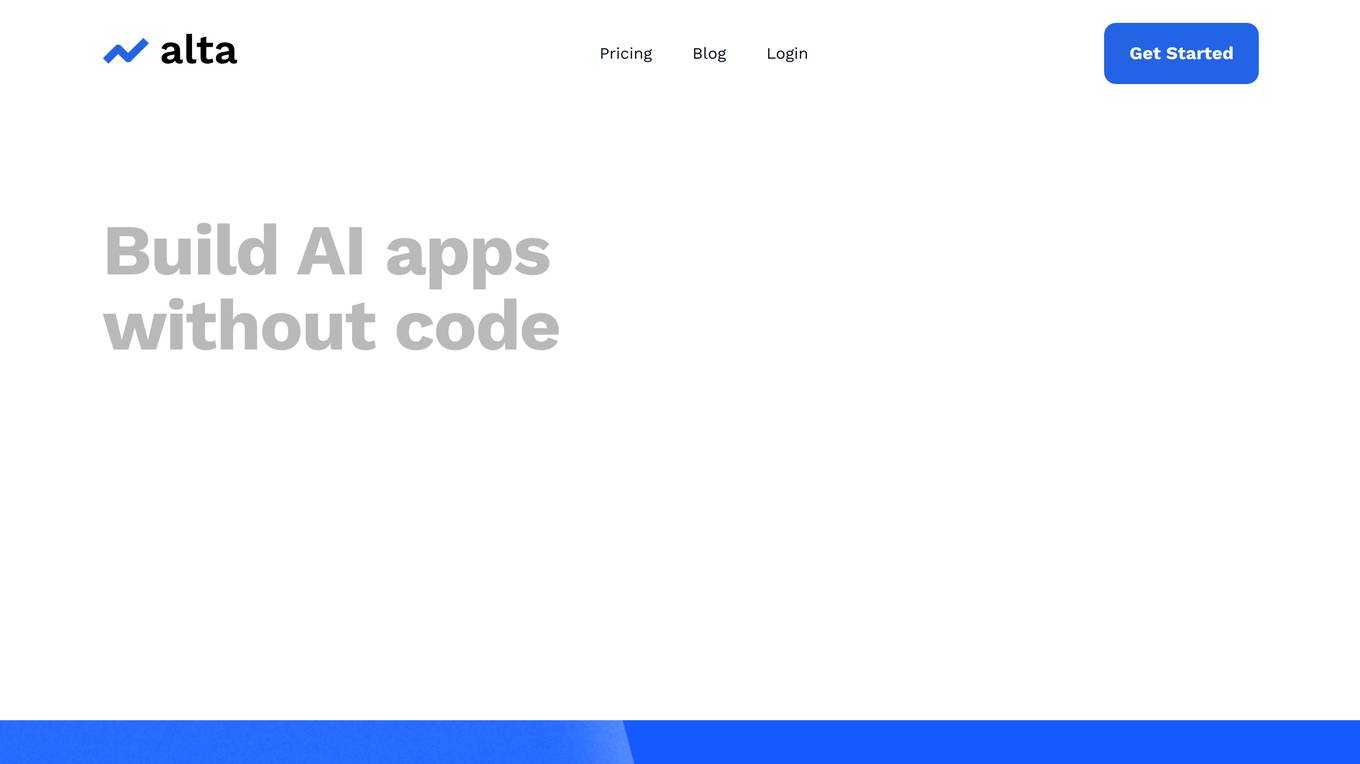
Alta
Alta is a no-code AI-powered application builder that allows users to quickly and easily create AI chatbots, websites, and mobile apps. With Alta, users can design their app using drag-and-drop components, connect their data from various sources, and personalize their app with their own branding. Alta also provides real-time insights on all channels, allowing users to track their app's performance and optimize the user experience.
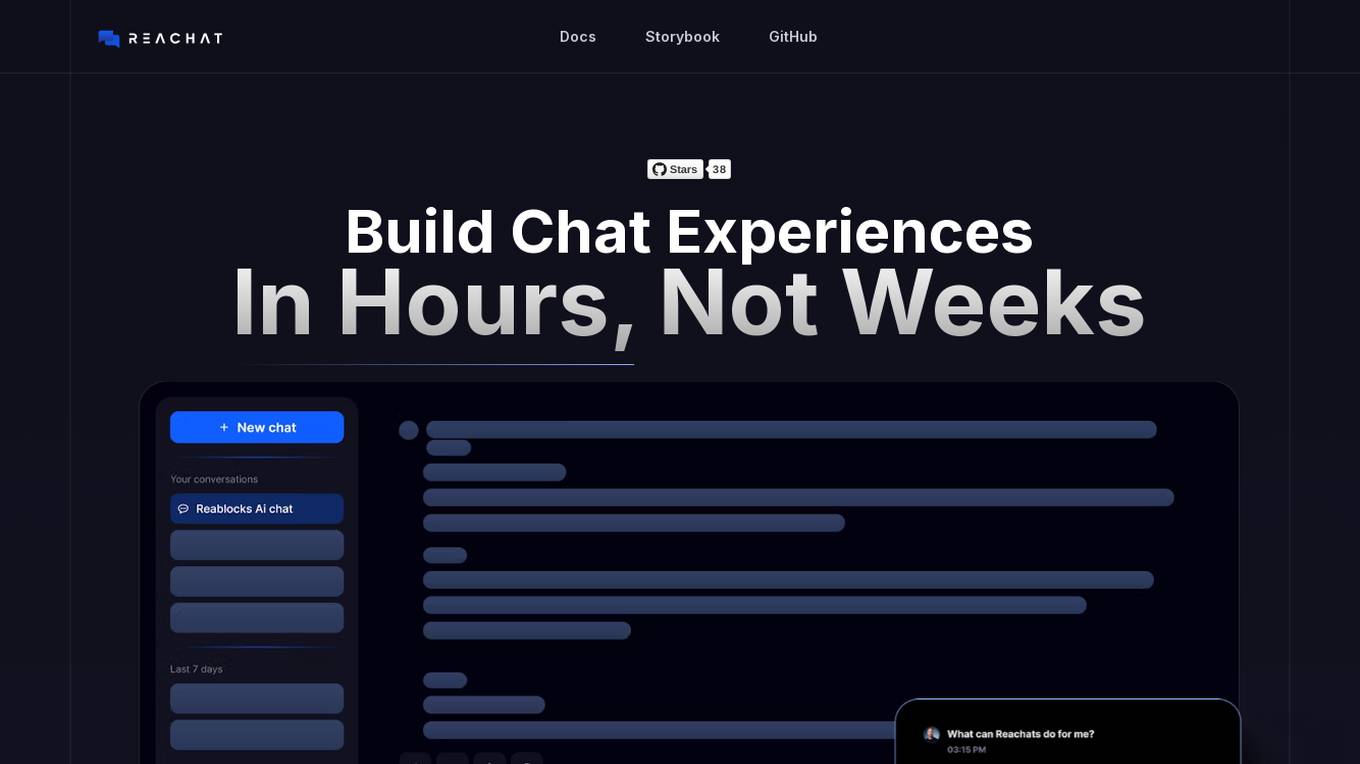
Reachat
Reachat is an open-source UI building library for creating chat interfaces in ReactJS. It offers highly customizable components and theming options, rich media support for file uploads and markdown formatting, an intuitive API for building custom chat experiences, and the ability to seamlessly switch between different AI models. Reachat is battle-tested and used in production across various enterprise products. It is a powerful, flexible, and user-friendly AI chat interface library that allows developers to easily integrate conversational AI capabilities into their applications without the need to spend weeks building custom components. Reachat is not tied to any specific backend or LLM, providing the freedom to use it with any backend or LLM of choice.
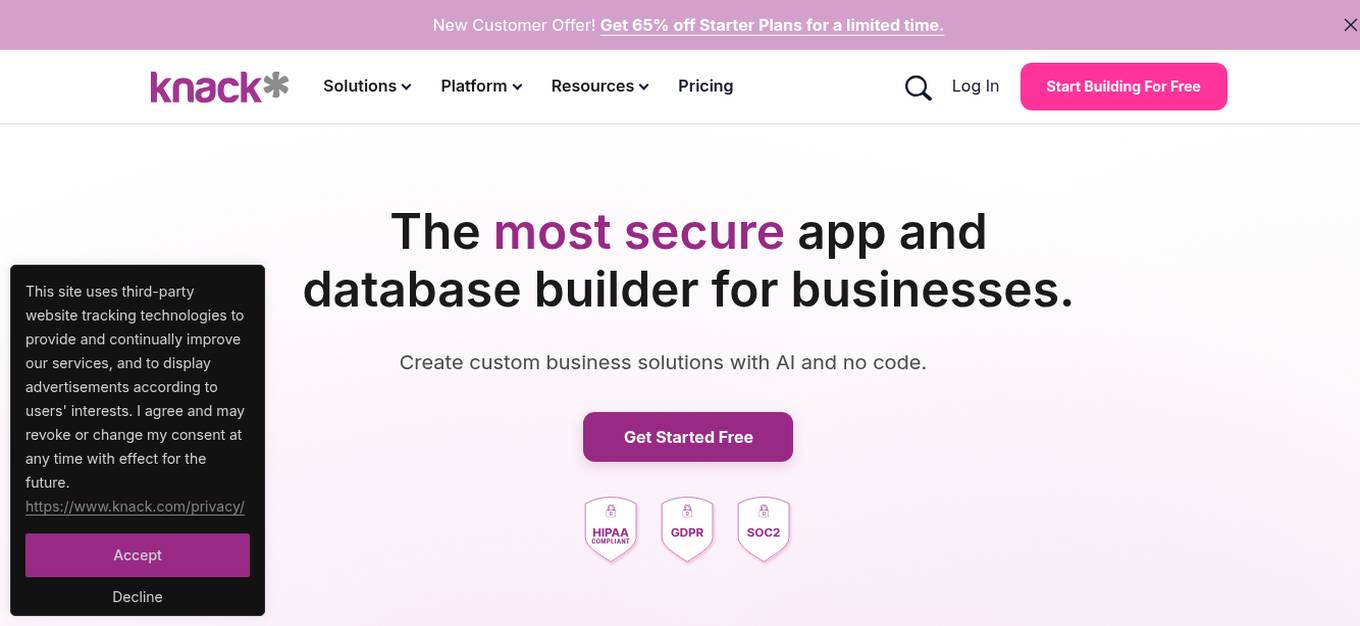
Knack
Knack is a no-code application development platform that enables users to build custom business solutions with AI and without the need for coding. It offers enterprise-grade components, HIPAA/GDPR compliance, user management, and scalable infrastructure. Knack stands out by delivering working business applications quickly, outgrowing spreadsheet tools, and providing sophisticated workflows with integrations and custom business logic. The platform is designed to be user-friendly, allowing anyone to create powerful, custom apps without writing code.
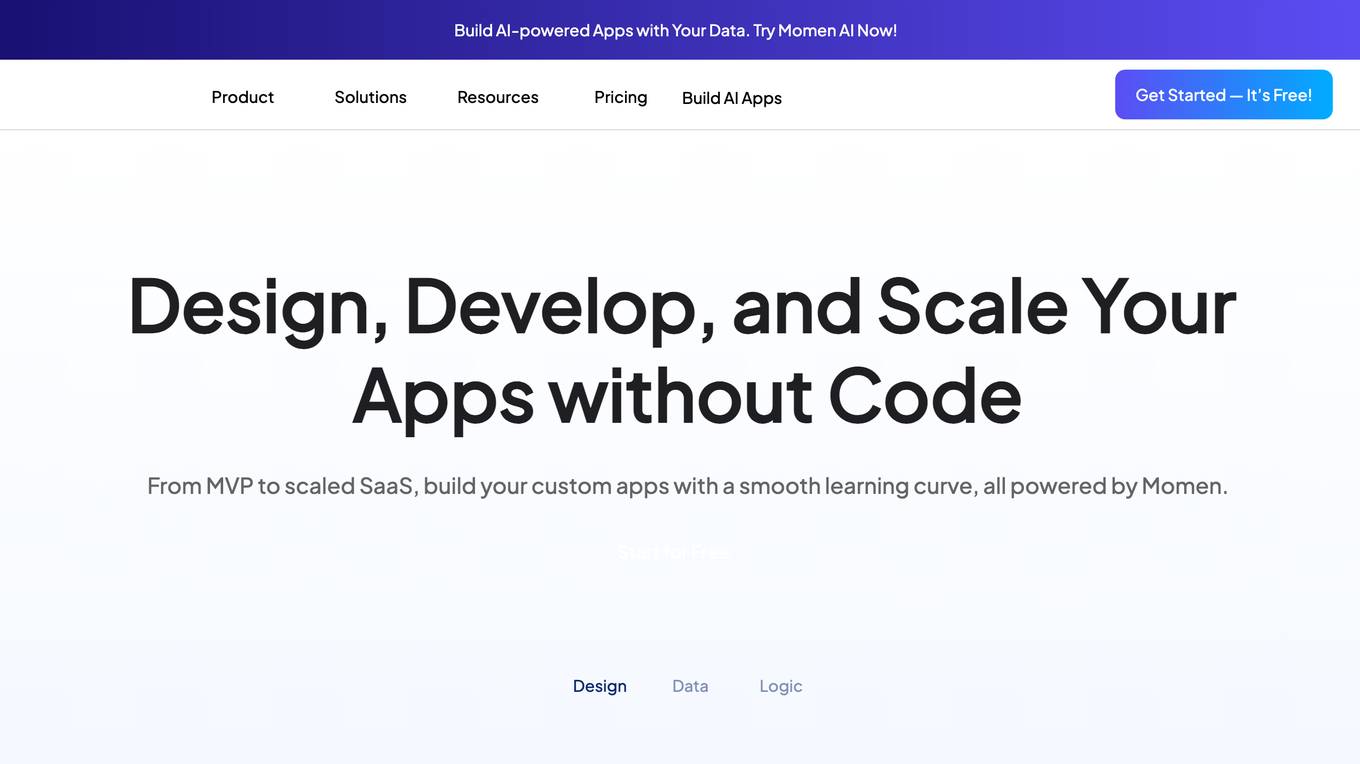
Momen
Momen is a platform that allows users to build web applications without the need for coding. From designing to developing and scaling apps, Momen offers a smooth learning curve for users to create custom apps. The platform provides features such as dynamic canvas, live preview, interactive animations, and reusable components. With Momen, users can clarify user journeys, unleash their creativity, and build feature-rich apps with ease. The platform also ensures predictable costs, assured scalability, and advanced collaboration workflows for million-user projects. Momen AI 2.0 enables users to build AI agents. Additionally, Momen offers SEO controls, AI app development, exclusive programs for education, tailored solutions for content creators, and various resources and support options.
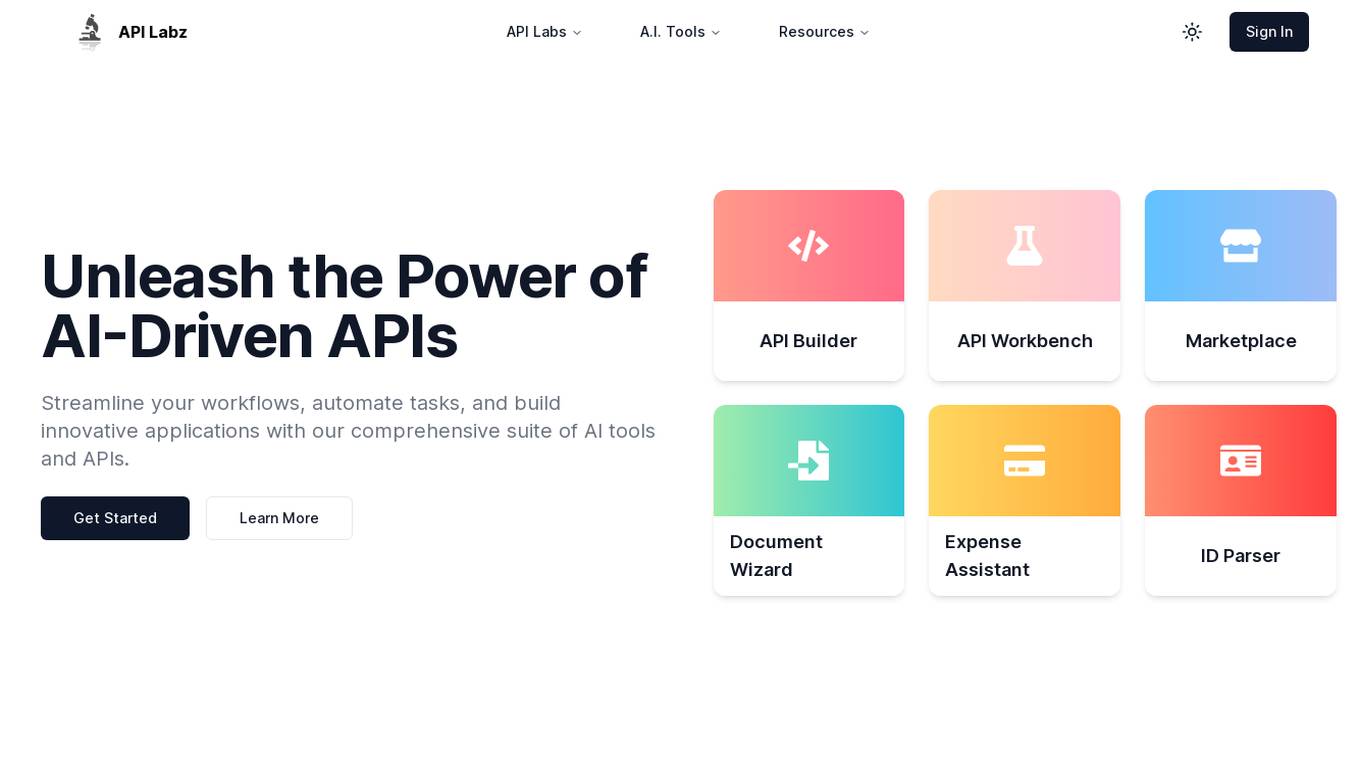
API Labz
API Labz is an AI-powered platform that offers a comprehensive suite of tools and APIs to streamline workflows, automate tasks, and build innovative applications. From custom API building to document processing and financial analysis, API Labz provides intelligent solutions to drive efficiency and enhance business processes. The platform also includes features like AI-powered ID parsing, seamless integrations with third-party applications, and a curated API marketplace for easy access to pre-built APIs.
0 - Open Source AI Tools
20 - OpenAI Gpts
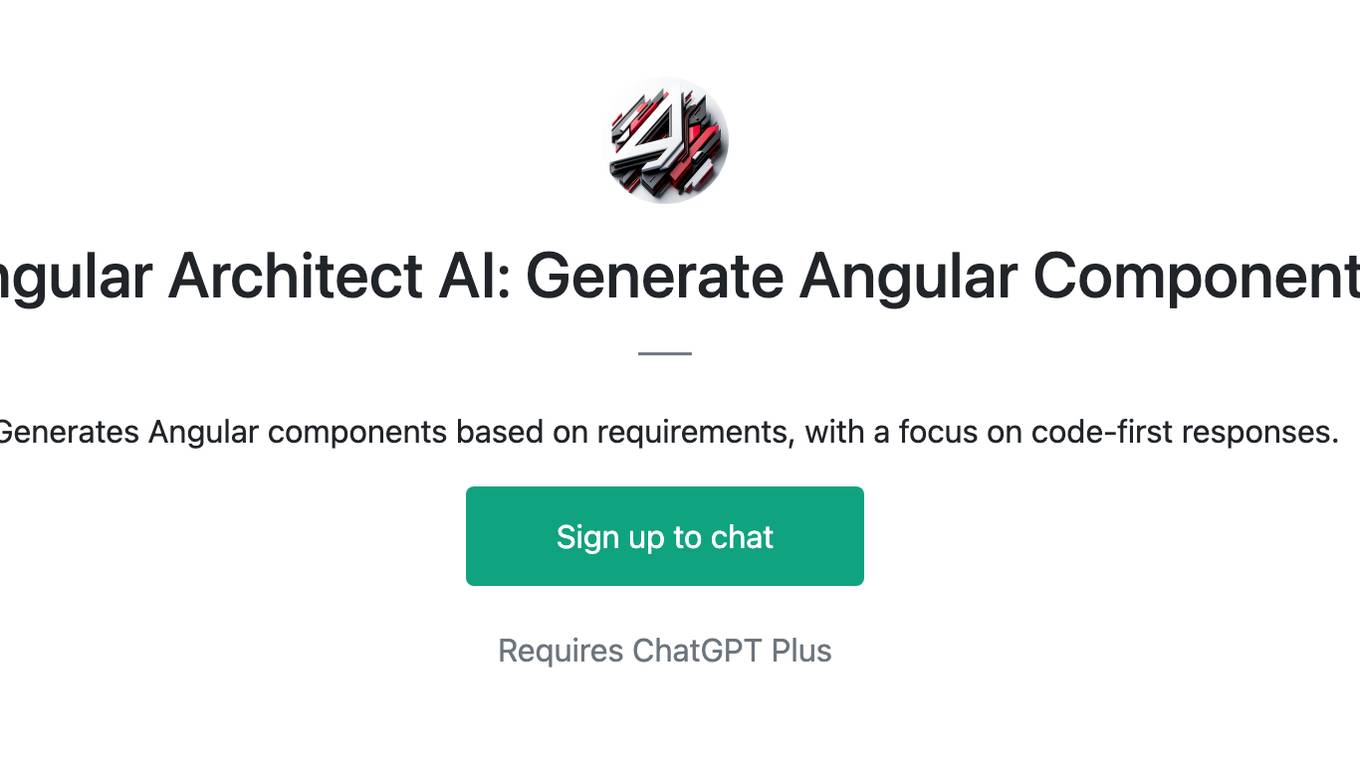
Angular Architect AI: Generate Angular Components
Generates Angular components based on requirements, with a focus on code-first responses.
![[latest] Vue.js GPT Screenshot](/screenshots_gpts/g-LXEGvZLUS.jpg)
[latest] Vue.js GPT
Versatile, up-to-date Vue.js assistant with knowledge of the latest version. Part of the [latest] GPTs family.
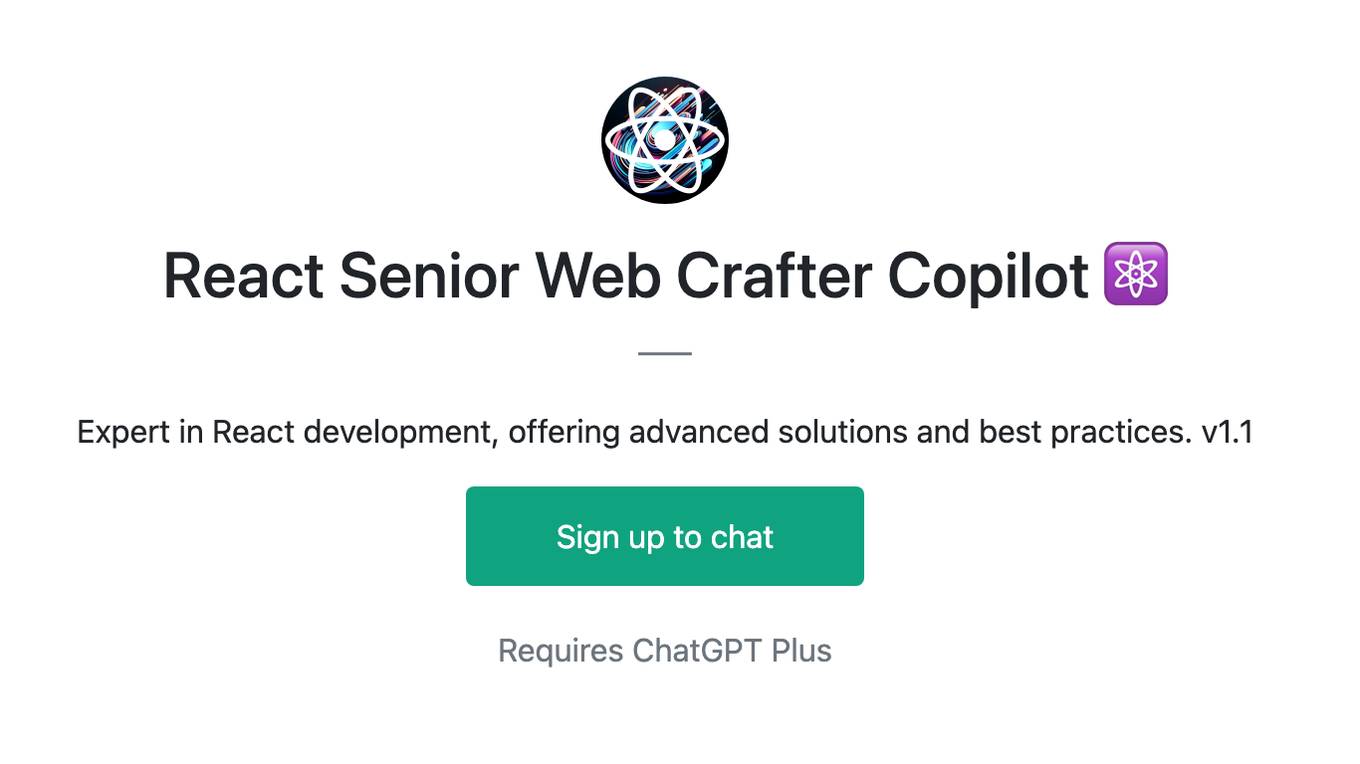
React Senior Web Crafter Copilot ⚛️
Expert in React development, offering advanced solutions and best practices. v1.1
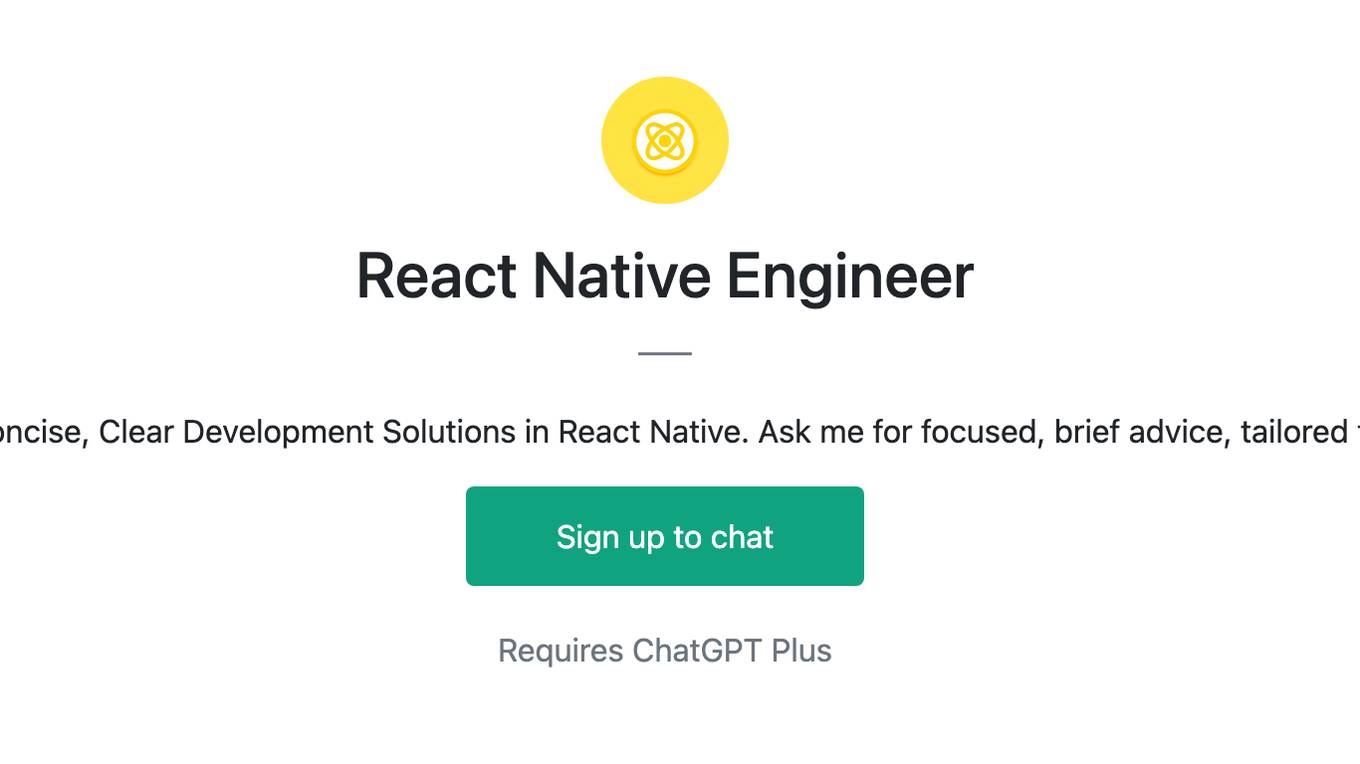
React Native Engineer
Top React Native Engineer - Concise, Clear Development Solutions in React Native. Ask me for focused, brief advice, tailored to your project and skill level.

World Class React Redux Expert
Guides to optimal React, Redux, MUI solutions and avoids common pitfalls.
